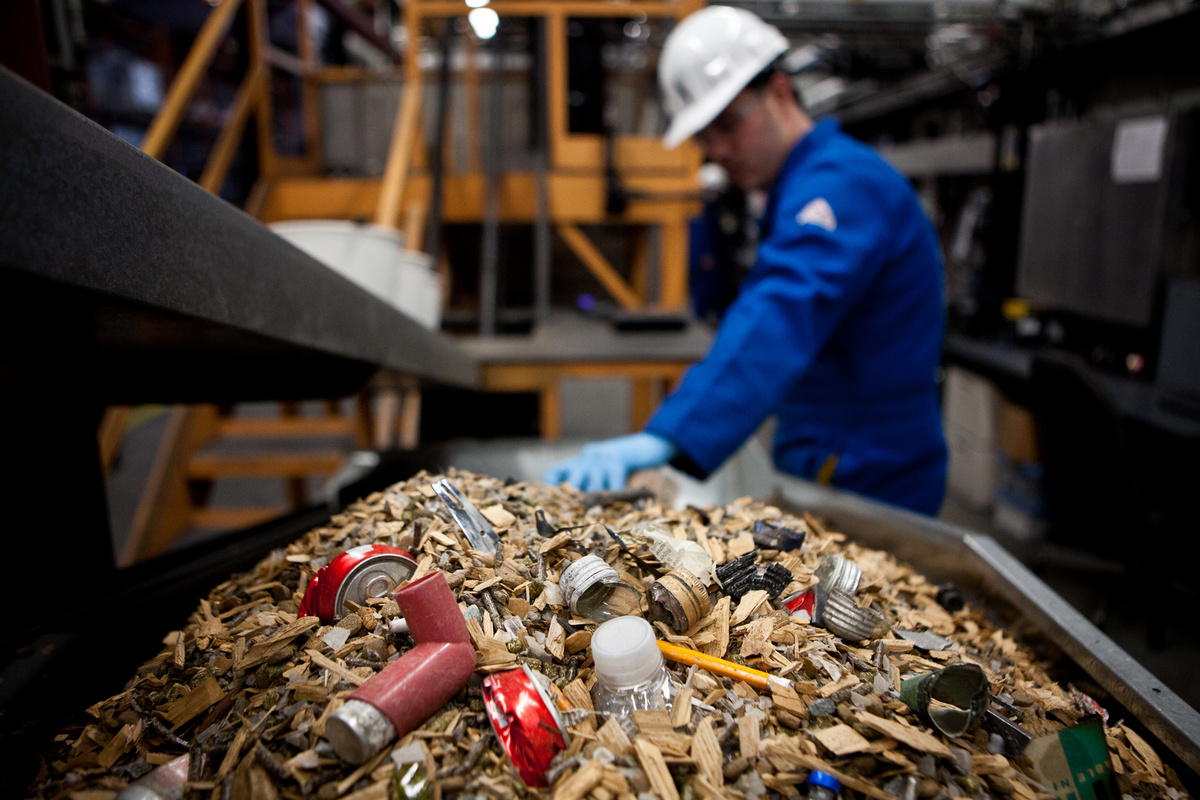
Extending the moratorium on bankruptcy for state-owned mines until January 1, 2025, doesn't just preserve an old problem instead of solving it. It amplifies the scale of negative consequences that will still need to be dealt with in the future.
A chronic condition
Few will recall the last time state-owned coal mines under the Ministry of Energy reported profits. Since the mid-2000s, the state sector of the coal industry in Ukraine has been consistently unprofitable. Consequently, it relies on subsidies.
In other words, state mines can operate solely thanks to billions poured in from the state budget. Just between 2008 and 2012, 60 billion hryvnias ($7.5 billion at the exchange rate of that time) were allocated for this purpose. And this was far from the most prosperous period for the Ukrainian economy.
The record volume of government support was recorded in 2013 – 13.3 billion hryvnias. At the same time, the sector of state-owned coal mining also set a record for losses that year: 15.128 billion hryvnias.
Thus, the more money the state allocated to help coal miners, the deeper the industry sank into a financial "pit". Although, it would seem, this contradicts not only economic theory but also common sense.
In 2014, the then Prime Minister A. Yatseniuk noted that the state paid state mines an average of 1.5 thousand hryvnias for each ton of coal mined – despite its market price being 600 hryvnias per ton. But even this did not help pull the industry out of the red, let alone reach a break-even level of production.
Not even the infamous "Rotterdam+" formula – approved by the National Energy and Utilities Regulatory Commission and in effect from 2015 to 2019 – helped. This formula required energy companies to pay for domestically mined coal as if it were imported and purchased on the market, with an additional markup for the hypothetical delivery from Rotterdam to Ukraine.
And in 2016, the losses of the state coal industry amounted to 3.2 billion hryvnias. Yes, the negative financial result decreased by 5 times compared to 2013. But only because there were fewer state mines themselves (most of them remained in the occupied territories of Donbas controlled by the russians and were flooded).
The nature of the losses can be illustrated by just one case that previously caught the attention of the National Anti-Corruption Bureau of Ukraine.
As its employees found out, for almost 3 years, the administrations of the state-owned enterprises "Selydovuhillia", "Myrnohradvuhillia" and "Mine Management Pivdennodonbaske No. 1" purchased equipment, spare parts, and consumables (sometimes even without production necessity) at inflated prices from "their" companies. Overpaying by 51.17 million hryvnias.
Overall, just in 2017, the State Audit Service conducted 12 audits at state mines, identifying financial violations amounting to 2 billion hryvnias. These violations led to losses of 1.6 billion hryvnias. Similar facts were regularly recorded by law enforcement agencies. And yet, they continued to occur regularly.

Employees of the Security Service of Ukraine conduct a search at the office of the state-owned enterprise "Lvivvuhillia", December 2019
Hence the chronic debts to the employees. When artificially inflated (through embezzlement, as procurement at inflated prices is theft) expenses of state mines exceed their income from coal sales, there is simply no money left for the workforce's salaries.
Therefore, hungry miner protests in front of the presidential office/secretariat/administration occurred under all heads of state, starting with L. Kravchuk.

Miners' protest near the President's Office, Kyiv, June 2020
Despite this (and partly thanks to it, to avoid protests and the growth of social tension), state coal industry continued to receive budgetary subsidies annually.
Stop bankruptcy
Moreover, in April 2017, the Verkhovna Rada adopted a law on the moratorium on the bankruptcy of state mines - until January 1, 2019. Then it was regularly extended.
The last time this was done was on March 5 of the current year when the President signed another law to extend the ban on enforcement proceedings to collect debts from state mines based on court decisions (implemented in the form of bankruptcy proceedings of the debtor).
The explanatory note to the draft law states that this is necessary because state mines ensure the energy security of the country during the heating season. Bankruptcy will lead to their liquidation. You can agree with the first part of the thesis.
But isn't ensuring energy security for a warring country too expensive for the budget to be done in this way, by preserving the outdated problems of the industry? Obviously, it would be much easier and cheaper to purchase the necessary amount of coal through imports.
One of the most tangible indicators showing that nothing has changed in the industry since the start of full-scale war is the unpaid wages to miners. According to the Trade Union of Coal Industry Workers (TUCIW), the current debt as of March only in the "Lvivvuhillia" association amounts to 123 million hryvnias.
In total, the industry's debts for salaries amount to 1.3 billion hryvnias and have been accumulating (hold your breath!) since 2015. That is, miners have not been able to receive their hard-earned money for 9 years (!). The increase in debt for the past year amounted to 233 million hryvnias.
Another illustration is the report of the State Audit Service on the results of the audit at the "Volynvuhillia" State Enterprise, completed in December 2023. It revealed a shortage of equipment in the warehouses amounting to 31 million hryvnias. This means that money was transferred to some companies, but nothing was received in return.
Considering that by law, state-owned enterprises are allowed to pay for the purchase of necessary products only upon their delivery, it would be naive to think that some seasoned fraudsters "swindled" such money from the trusting and foolish management of "Volynvuhillia". It is much more likely that there was a criminal conspiracy and embezzlement of enterprise funds through fictitious procurement.
This is similar to the situation with the statute of limitations for debts to the association by the same "contractors" amounting to 20.5 million hryvnias (also revealed during the audit by the State Audit Service).
Who would believe that the CEO of "Volynvuhillia" and the head of its legal department suddenly suffered from amnesia and forgot that their enterprise is owed such a sum?
The conclusion follows: the formula "embezzlement - unprofitability of mines - wage debts" continues to operate in the state-owned coal sector. No matter what happens in the country.
But coal state-owned enterprises have not only failed to pay their employees. As early as 2017, at the time of the moratorium on bankruptcy of state mines, their debt to regional power companies for received and used electricity reached 5.2 billion hryvnias.
Obviously, over the past 6 years, even more has "accumulated", considering the penalties for overdue payments. Needless to say, such a burden on the balance sheets of energy supply companies, to put it mildly, does not contribute to their financial "health" and economic activities.
Now, the question arises: how does the moratorium help solve the accumulated problems in the industry? And in this case, how advisable is it to continue budget subsidies for state mines?
The "Ukrspyrt" case
The situation in the state concern "Ukrspyrt" was no less dismal than in the state coal industry for many years. In the end, the state "resolved" it by privatization.
The logic of the authorities was as follows: since they couldn't de-shadow the operation of the distilleries, they simply needed to get rid of them by transferring them to private owners.
The decision was far from uncontroversial. But if we accept as a fact the inability of law enforcement agencies to stop embezzlement and other "endeavors" of management of state enterprises and industry leadership, then yes, it is the only possible one.
And we must be prepared for the fact that debt-burdened state-owned mines will have to be sold off like the Trylisky distillery - for next to nothing. But if we prioritize the "lesser evil" - there simply is no other choice.
Continuing to "pour in" billions of hryvnias into state-owned mines annually or handing them over "for 1 hryvnia" to those willing to engage in coal mining and invest their own money? The answer is quite obvious.
So, in this case, the solution is not a moratorium but privatization. Or bankruptcy. By the way, the authors of the adopted bill to extend the moratorium are slightly misleading when they claim that bankruptcy of state mines will lead to their liquidation. Not necessarily.
Because bankruptcy, besides liquidation, provides an opportunity for financial recovery: when a new management, accountable to creditors, is appointed to the debtor enterprise by the decision of the creditors' committee. In essence, it is something like privatization, but under a different "sauce".
By Vitaliy Krymov, OstroV




